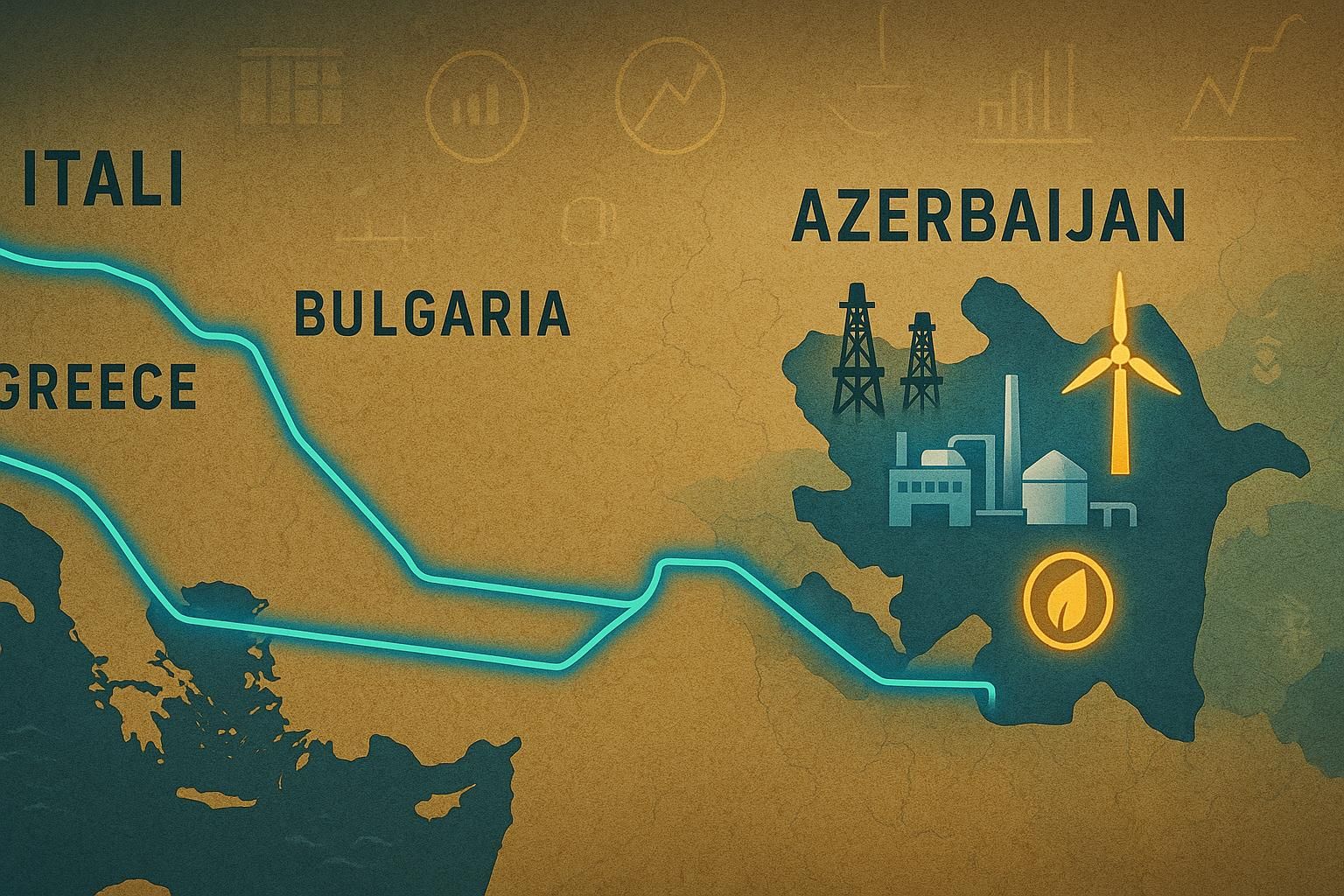At a time when global energy competition is intensifying,
possessing energy resources is a significant advantage because, in
many ways, energy equates to economic power. A strong economy, in
turn, ensures influence on the global stage. In this context, it is
essential to use both traditional energy sources efficiently and to
leverage alternative energy resources. Azerbaijan’s economic
strategy aligns precisely with this vision. The country employs a
smart approach to utilizing its abundant carbon and hydrogen
resources: it channels revenues from the oil and gas sector to
diversify its economy and exports energy to major markets such as
Europe. At the same time, Azerbaijan is not content with relying
solely on fossil fuels—it is actively developing new alternative
energy projects and launching large-scale initiatives for the
direct export of this energy. Azerbaijan plays a dual role, both as
a producer and as a transit hub, in the evolving regional energy
landscape.
Azerbaijan continues to consolidate its position as a strategic
energy partner for Europe. According to the Ministry of Energy, the
total volume of natural gas supplied from Azerbaijan to Europe has
now surpassed 50 billion cubic meters (bcm), a figure that
highlights the country’s growing role in the continent’s energy
landscape. This achievement comes through the Trans-Adriatic
Pipeline (TAP) – the final link of the Southern Gas Corridor (SGC)
– which has become an essential element of the EU’s diversification
strategy.
Since the TAP became operational in late 2020, the volume of
exports has increased significantly, both in scale and geographic
reach. Currently, Azerbaijani gas is supplied not only to immediate
neighbors like Georgia and Türkiye, but also to 10 European
countries, including major EU economies.
How Baku becomes crucial link in EU’s energy
chain
The timing of Azerbaijan’s expanded gas exports coincides with a
period of heightened volatility in global energy markets. The
aftermath of the Russia-Ukraine conflict has spurred European
countries to urgently seek alternative and reliable energy sources.
Azerbaijan has emerged as a key player in this reconfiguration,
providing a non-Russian source of natural gas delivered through
secure and politically stable transit routes.
In 2024 alone, Azerbaijan exported 12.9 bcm of natural gas to
Europe, representing more than half of its total exports. With
demand increasing, 14 countries have now expressed interest in
importing Azerbaijani gas, potentially adding another 14 bcm of
demand to already contracted amounts. This signals strong and
sustained confidence in Azerbaijan’s export capabilities and
geopolitical reliability.
Azerbaijan’s capacity to meet rising demand is underpinned by
major upstream projects such as Shah Deniz, Azeri-Chirag-Guneshli,
and Absheron. These developments have bolstered production capacity
and proven the country’s long-term commitment to stable supply. The
nation’s proven reserves of 2.6 trillion cubic meters and projected
reserves of approximately 3 trillion cubic meters position it well
to remain a leading supplier in the decades to come.
At the Baku Energy Forum, President Ilham Aliyev emphasized this
dynamic, noting that Azerbaijan’s export volumes reached 25 bcm
last year and could rise by another 8 bcm by 2030 based on ongoing
developments and new contracts. He framed Azerbaijan’s success in
terms of balanced cooperation between producer, transit, and
consumer countries—describing it as a “win-win” model for future
energy partnerships.
“When energy resources are properly managed, and cooperation
between investors, the host country, and transit countries works as
it does here, you achieve success,” said President Aliyev.
Central to Azerbaijan’s export strategy is the Southern Gas
Corridor, a 3,500-kilometer system that delivers Caspian gas to
Europe. Its backbone, the TAP pipeline, currently has a capacity of
12 bcm annually, but expansion plans are already underway. By 2027,
Azerbaijan aims to increase gas exports to 20 bcm per year, a move
that would significantly reduce Europe’s dependency on a limited
number of gas suppliers.
This expansion aligns with the EU’s broader strategic goals to
enhance energy security, reduce supply vulnerabilities, and
counteract geopolitical risks. The diversification of supply
sources, especially from politically stable and economically
motivated partners like Azerbaijan, is seen as a cornerstone of
Europe’s energy transition in the medium term.
As the geopolitical and economic map of global energy continues
to shift, Azerbaijan has carved out a reputation as a reliable,
forward-thinking supplier. Its ability to deliver increasing
volumes of gas, develop new fields, and expand export
infrastructure underscores the country’s strategic importance to
European energy security.
While challenges remain – not least in terms of infrastructure
investment and coordination with transit countries – Baku’s
long-term vision and proven execution capabilities have made it an
indispensable energy partner. If current plans hold, Azerbaijan
could soon be exporting nearly twice as much gas to Europe as it
does today, solidifying its role as a central pillar of the
continent’s diversified energy future.

